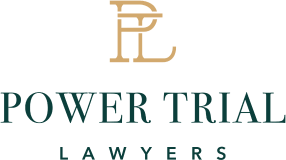- Free Consultation: (213) 800-7664 Tap Here to Call Us
AB 1310
California Criminal Appeals Attorneys Helping Obtain Resentencing Hearings Based on New Legal Developments
Note: AB 1310 is proposed legislation and is not yet enacted law. Thus, any of the remedies created by AB 1310 are not yet available and will only become available if and when AB 1310 is signed into law by Governor Gavin Newsome. This was drafted in 2023.
California lawmakers have been busy over the past decade revamping much of the state’s criminal justice system. In particular, these reforms have been centered around California’s harsh sentencing laws, which previously were among the harshest in the nation. It’s with this backdrop that Assembly Member McKinnor introduced “Assembly Bill 1310”, which is one of the state’s newest resentencing measures.
Assembly Bill 1310 (“AB 1310”) isn’t yet law; however, it passed the Assembly on May 31, 2023, at which point it was submitted to the Senate. Currently, the bill is being held under submission in the Senate, and if it makes it out of the Senate, it will end up on Governor Gavin Newsome’s desk where he will need to sign the bill into law before it becomes effective. This law would set the stage to help many individuals currently incarcerated.
What Would AB 1310 Do?
Assembly Bill 1310 takes aim at two of the most used sentencing enhancements in California: personal use of a firearm during the commission of a felony or attempted felony under PC § 12022.5 and §12022.53. To better grasp the tremendous impact that AB 1310 could have, it’s important to understand the current state of the law.
Current State of Law
Currently, under § 12022.5, anyone who is found to have used a firearm during the commission of a felony or attempted felony is subject to sentencing enhancement that adds 3, 4, or 10 years to their sentence. However, if the underlying felony was one of those enumerated in § 12022.53, the enhancement becomes ten years unless the firearm was discharged, in which case the law calls for a 20-year enhancement. And, if someone is seriously injured or killed, the defendant will face an enhancement of 25 years to life.
Until 2018, judges lacked discretion to strike these enhancements. However, in 2018, California lawmakers passed Senate Bill 1393, which gives judges the ability to strike firearm enhancements under §§ 12022.5 and 12022.53, if doing so is in the interests of justice.
While SB 1393 was a major victory in terms of creating a fairer criminal justice system, it did little for those whose convictions were already final. For example, inmates currently serving a sentence made up of a § 12022.5 or § 12022.53 enhancement were ineligible for relief because the law was not fully retroactive.
Here’s where AB 1310 would come into play. If passed, AB 1310 essentially makes SB 1393 retroactive. More precisely, the law would,
[R]equire the Secretary of the Department of Corrections and Rehabilitation to identify persons in custody who, on or before January 1, 2018, suffered a conviction of [§ 12022.5 or § 12022.53] firearm enhancements. Upon determining the person qualifies for resentencing, the bill would require the trial court to appoint counsel and authorize the court to strike or dismiss an enhancement, as specified.
Thus, AB 1310 makes it the government’s, specifically the CDCR’s, burden to identify all qualifying inmates and refer them to the court, which is then required to hold a hearing to determine whether the firearm enhancements should be stricken or dismissed.
The bill also sets forth a timeframe by which the CDCR is responsible for reviewing inmates’ sentences based on whether they have completed their base term. However, the initial timeframe proposed in AB 1310 will need to be changed if the bill is passed, as those dates have already passed because the bill has been pending since February 2023.
How Can AB 1310 Help Inmates Serving a Sentence Made Up of One or More Enhancements?
Currently, an inmate serving a sentence that contains an enhancement under § 12022.5 or § 12022.53 is not able to file a standalone resentencing petition based on the enhancements alone. So, while inmates can file a resentencing petition claiming their enhancements should be stricken under the interests-of-justice standard under § 1172.1, they would need to go through the CDCR or the District Attorney’s office. In this case, both the CDCR and the District Attorney’s office would have the discretion to recommend a resentencing hearing, but neither is under any obligation to do so.
AB 1310 is different because it mandates CDCR to identify qualifying inmates and requires the court to hold a hearing. Thus, there is no need to convince the CDCR or District Attorney’s office that an inmate is “deserving” of a resentencing hearing based on the fact that they’ve been rehabilitated. Of course, those inmates who have engaged in self-help programming and present a strong character-based case for relief will likely have better outcomes in an AB 1310 petition; however, evidence of rehabilitation is not a requirement.
Speak with a Experienced California Criminal Resentencing Lawyers for Additional Assistance
If you or a loved one are currently serving a lengthy sentence that is made up of one or more sentencing enhancements, AB 1310, if passed, may provide you with avenues of relief that were previously unavailable. At Power Trial Lawyers, our dedicated team of Los Angeles criminal appeals attorneys has extensive experience pursuing all types of resentencing relief on behalf of inmates across the state. To learn more, and to schedule a free consultation, reach out to Power Trial Lawyer today at 213-800-7664. You can also connect with us through our secure online contact form.


















